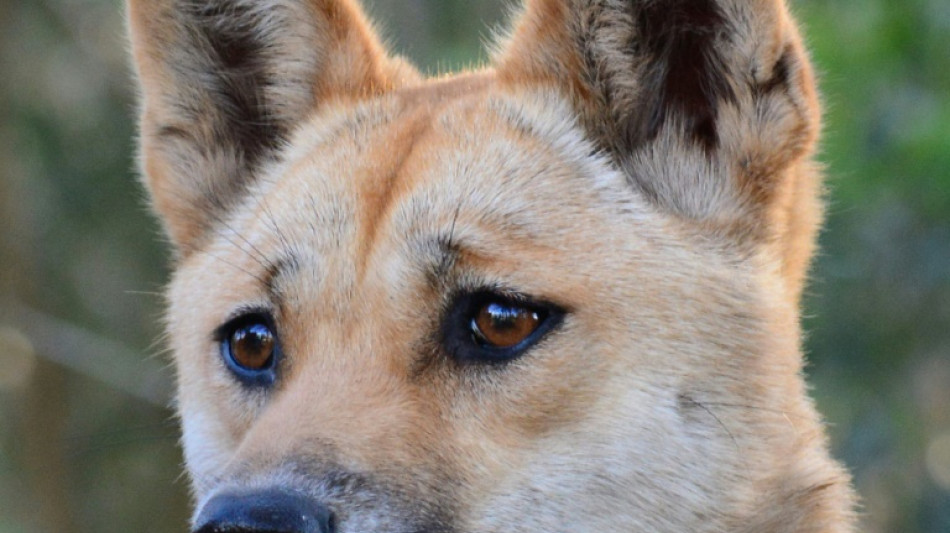
-
 Czech qualifier Bejlek claims first title in Abu Dhabi
Czech qualifier Bejlek claims first title in Abu Dhabi
-
French duo reach Shanghai, completing year-and-a-half walk

-
 Australian snowboarder James eyes elusive Olympic gold
Australian snowboarder James eyes elusive Olympic gold
-
Sequins and snow: Eva Adamczykova makes Olympic return

-
 Vonn set for Olympic medal bid after successful downhill training
Vonn set for Olympic medal bid after successful downhill training
-
Shepherd takes hat-trick as West Indies beat Scotland in T20 World Cup

-
 Sausages will sell after thrill-seeker Von Allmen wins Olympic downhill
Sausages will sell after thrill-seeker Von Allmen wins Olympic downhill
-
Swiss racer Von Allmen wins first gold of Winter Olympics

-
 'Wake up': Mum sparks comeback after scare for freeski star Gu
'Wake up': Mum sparks comeback after scare for freeski star Gu
-
Von Allmen wins men's Olympic downhill gold, first of Games

-
 First medals up for grabs at Winter Olympics
First medals up for grabs at Winter Olympics
-
Afghanistan captain Khan harbours dream of playing in Kabul

-
 Lindsey Vonn completes second Winter Olympics downhill training run
Lindsey Vonn completes second Winter Olympics downhill training run
-
Freeski star Gu survives major scare in Olympic slopestyle

-
 Iran FM looks to more nuclear talks, but warns US
Iran FM looks to more nuclear talks, but warns US
-
Hetmyer's six-hitting steers West Indies to 182-5 against Scotland

-
 After boos for Vance, IOC says it hopes for 'fair play'
After boos for Vance, IOC says it hopes for 'fair play'
-
Thousands gather as Pakistan buries victims of mosque suicide attack

-
 Lindsey Vonn completes second downhill training session
Lindsey Vonn completes second downhill training session
-
US pressing Ukraine and Russia to end war by June, Zelensky says

-
 Faheem blitz sees Pakistan avoid Netherlands shock at T20 World Cup
Faheem blitz sees Pakistan avoid Netherlands shock at T20 World Cup
-
Takaichi talks tough on immigration on eve of vote

-
 England's Salt passed fit for T20 World Cup opener
England's Salt passed fit for T20 World Cup opener
-
Spain, Portugal brace for fresh storm after flood deaths

-
 Pakistan bowl out Netherlands for 147 in T20 World Cup opener
Pakistan bowl out Netherlands for 147 in T20 World Cup opener
-
Pushed to margins, women vanish from Bangladesh's political arena

-
 Crypto firm accidentally sends $40 bn in bitcoin to users
Crypto firm accidentally sends $40 bn in bitcoin to users
-
Pistons end Knicks' NBA winning streak, Celtics edge Heat

-
 Funerals for victims of suicide blast at Islamabad mosque that killed at least 31
Funerals for victims of suicide blast at Islamabad mosque that killed at least 31
-
A tale of two villages: Cambodians lament Thailand's border gains

-
 Police identify suspect in disappearance of Australian boy
Police identify suspect in disappearance of Australian boy
-
Cuba adopts urgent measures to address energy crisis: minister

-
 Not-so-American football: the Super Bowl's overseas stars
Not-so-American football: the Super Bowl's overseas stars
-
Trump says US talks with Iran 'very good,' more negotiations expected

-
 Trump administration re-approves twice-banned pesticide
Trump administration re-approves twice-banned pesticide
-
Hisatsune leads Matsuyama at Phoenix Open as Scheffler makes cut

-
 Beyond the QBs: 5 Super Bowl players to watch
Beyond the QBs: 5 Super Bowl players to watch
-
Grass v artificial turf: Super Bowl players speak out

-
 Police warn Sydney protesters ahead of Israeli president's visit
Police warn Sydney protesters ahead of Israeli president's visit
-
Simi Khanna Launches Simi Beauty SK: A Natural Skincare Line Blending Luxury, Wellness, and Purpose

-
 Best Gold IRA Companies February 2026 Announced (Top Gold-backed IRA Companies Revealed)
Best Gold IRA Companies February 2026 Announced (Top Gold-backed IRA Companies Revealed)
-
Bolivia wants closer US ties, without alienating China: minister

-
 Ex-MLB outfielder Puig guilty in federal sports betting case
Ex-MLB outfielder Puig guilty in federal sports betting case
-
Milan-Cortina Winter Olympics open with dazzling ceremony

-
 China overturns death sentence for Canadian in drug case
China overturns death sentence for Canadian in drug case
-
Trump reinstates commercial fishing in protected Atlantic waters

-
 Man Utd can't rush manager choice: Carrick
Man Utd can't rush manager choice: Carrick
-
Leeds boost survival bid with win over relegation rivals Forest

-
 Stars, Clydesdales and an AI beef jostle for Super Bowl ad glory
Stars, Clydesdales and an AI beef jostle for Super Bowl ad glory
-
Dow surges above 50,000 for first time as US stocks regain mojo


Dingoes aren't just feral dogs, says study
Dingoes might look like regular mutts, but in fact they're genetically in between wolves and dogs, according to a new study published Friday in Science Advances.
The iconic species -- revered in Aboriginal culture but the bane of modern ranchers -- has been Australia's top predator since the extinction of Tasmanian tigers last century.
However, "the evolutionary position of the dingo has been divided for a substantial period of time," co-author Bill Ballard of La Trobe University and the University of Melbourne told AFP.
Some hold that the lean, tan-colored canines brought to the continent 5,000 to 8,500 years ago are simply another form of domestic dog.
The new research -- a global collaboration involving 26 authors from 10 countries -- compared the genome of a desert dingo named Sandy, who was rescued in 2014 along with her siblings -- to those of five domestic dog breeds and the Greenland wolf.
They found the dingo's genome was structurally distinct from the boxer, German shepherd, basenji, Great Dane and Labrador retriever.
But she still shared more similarity with the domestic dogs than with the Greenland wolf. Among the breeds, Sandy was closer to the German shepherd than the rest.
“Sandy the desert dingo is intermediate between the wolf and the domestic dogs,” concluded Ballard. To be even more sure, the team is sequencing the genome belonging to an alpine dingo, found in the Australian Alps in the country’s east.
- Ancient human movements -
The finding can have several applications.
For one, the dingo genome can be used as an ancient reference book to help identify which genes are responsible for genetic disease in modern dogs, rather than trying to compare between breeds which share much common ancestry.
Knowing more about dingo evolution can also illuminate the history of the ancient people who brought them across the sea from Southeast Asia.
"At some stage they had to cross some water with some traveling peoples," said Ballard. "Whether they're First Nation Australians or whether they're people that interacted with First Nation Australians, we don't know."
The team hopes to get a clearer sense of the timeline and start to answer other questions like whether it was a single migration or multiple, once they sequence the alpine dingo.
The study also set out to test the differences in how dingoes metabolize nutrients compared to domestic breeds, by running a controlled diet study on a number of dingos and German shepherds.
Dingoes, like wolves, have only one copy of a gene that creates pancreatic amylase, a protein that helps dogs live on starchy diets, which humans have thrived on especially in the past 10,000 years.
German shepherds have eight copies of the gene. After receiving the same food and water for 10 days, the German shepherds’ scat contained three bacteria families involved in breaking down starch, confirming the researchers’ predictions.
Like the wolf in North America, dingoes are deeply polarizing: they are romanticized by city dwellers and play a prominent role in Indigenous songs and stories, but are hated by farmers for allegedly killing livestock.
According to Ballard, however, dingoes evolved to prey on small marsupials and aren’t easily able to digest high-fat foods -- thus lambs are more likely being hunted by feral dogs or hybrids.
He hopes to test the theory, and hopefully exonerate the dingo, in future behavior experiments.
D.Kaufman--AMWN


